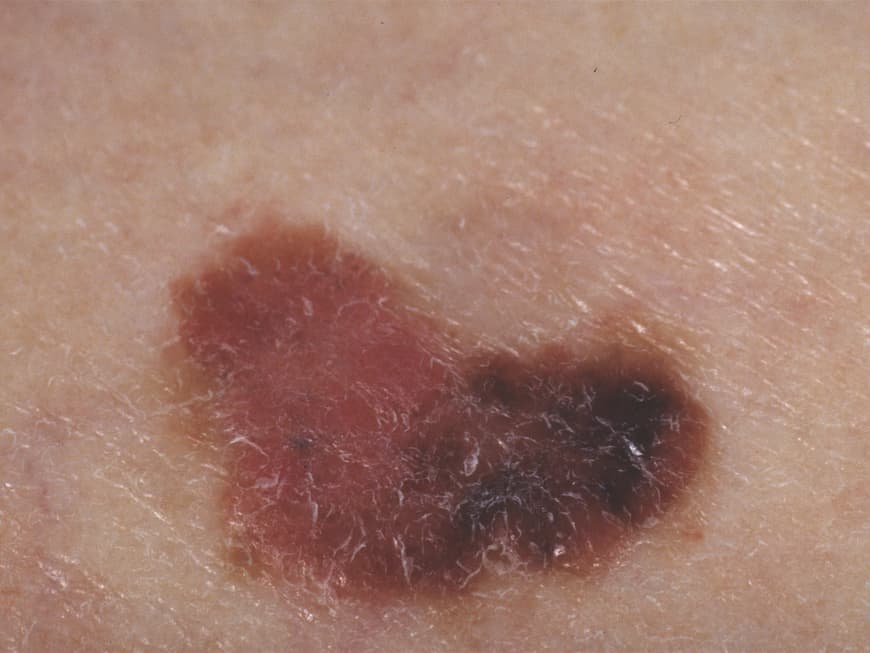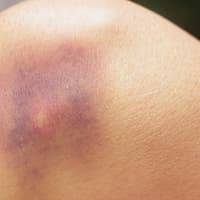Why is malignant melanoma so dangerous?
"Black skin cancer, also known as malignant melanoma, can usually be treated well if detected early by removing the affected tissue. However, if the cancer is only discovered at a later stage, it is very aggressive and dangerous. It can then spread rapidly throughout the body and form metastases. At this advanced stage, life expectancy is often only around six to ten months. For this reason, it is also the type of skin cancer that causes the most deaths."
How is malignant skin cancer detected?
"Regular screening of the skin for conspicuous skin changes is particularly important for the early detection of malignant melanoma: if new pigment spots and moles appear or their appearance changes in shape and size, these are signs that should definitely be assessed by a dermatologist. I can only advise you to keep an eye on your skin and have regular check-ups. Germany is the only country in the world where health insurance companies pay for all insured persons aged 35 and over to have a skin cancer screening every two years. If there is a family history of skin cancer or if there are many or conspicuous moles on the skin, I recommend having a check-up every year."
How can black skin cancer be treated?
"The treatment of malignant melanoma depends on the stage of the disease. In the early stages, when the skin tumor is still localized, complete removal of the affected tissue may be sufficient. However, the more the disease progresses, the more difficult the treatment becomes and the worse the prognosis. Until a few years ago, patients were mainly treated with chemotherapy.
However, advanced-stage melanoma responds poorly or inadequately to this therapy. Thanks to intensive research in the field of immuno-oncology, there has been a breakthrough in cancer therapy. The treatment of advanced-stage melanoma with immuno-oncology therapies has led to a significant prolongation of life in some patients."
What is the difference between immuno-oncology therapies and conventional chemotherapy?
"Immuno-oncology therapies are based on knowledge about the interaction between cancer cells and the immune system. Normally, the immune system is responsible for recognizing and fighting pathogens or pathologically altered cells, such as cancer cells. However, some cancer cells have developed mechanisms to evade destruction by the immune system by thwarting its defense mechanisms. Innovative immuno-oncological agents activate the body's own immune system and can thus enable it to fight the cancer again. It is an innovative and elegant way of treating cancer because, unlike previous cancer therapies such as chemotherapy, the cancer cells are not attacked directly, but the body's own immune system is activated to fight the cancer. As with any therapy that triggers a biological reaction in the body, immuno-oncological therapies can also lead to side effects. However, these differ significantly from those of chemotherapy. For example, immuno-oncological agents do not usually cause hair loss. However, the activated immune system can also attack the body's own healthy tissue. This can lead to inflammation of the lungs, intestines, liver or thyroid, for example, but this can often be controlled by administering cortisone, for example."
What opportunities do immuno-oncology therapies offer?
"Immuno-oncology therapies can significantly improve the prognosis for patients with advanced-stage malignant melanoma. While chemotherapy previously only offered affected patients a slim chance of surviving for more than a year, innovative immuno-oncology drugs can contribute to a significant prolongation of life."









